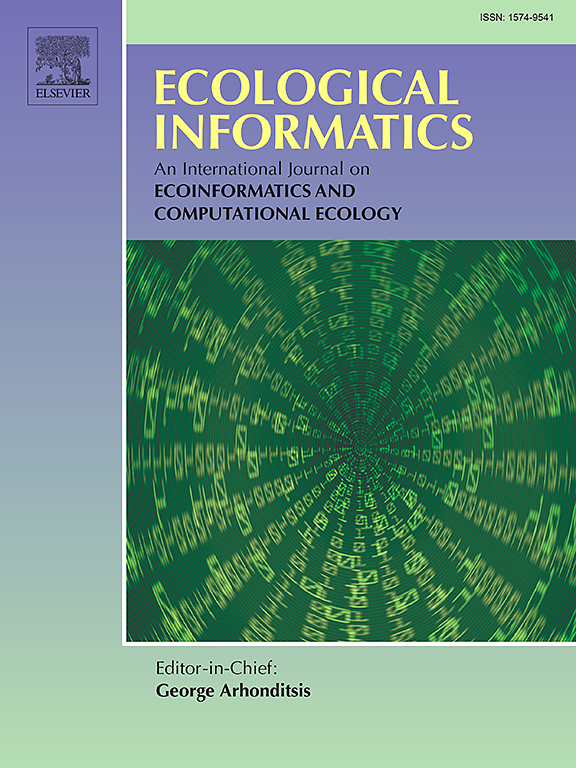Decentralized federated learning using validation loss for model sharing in crop disease classification
IF 7.3
2区 环境科学与生态学
Q1 ECOLOGY
引用次数: 0
Abstract
Agriculture plays an essential role in the economies of many countries, as it provides numerous livelihoods. However, managing crop diseases is one of the major challenges in modern agriculture. Using artificial intelligence (AI) for the early detection and diagnosis of crop diseases is an interesting approach to tackle this problem. Several AI methods have been employed for this purpose, but despite achieving good results, many challenges remain, such as protecting farmers’ data, using machine learning on edge devices, and employing collaborative learning. In this context, federated learning (FL) has emerged as a promising machine learning approach that enables to build efficient models with a collaborative manner, while preserving data privacy and security. There exist two types of FL: centralized and decentralized. In this paper we employ the approach of decentralized FL for crop disease image classification that utilizes peer-to-peer communication for updating models for each client. To address the problem of the robustness of shared models, we propose a new strategy based on validation loss, where the aggregated models should satisfy a certain criterion of performances. We implemented and tested two types of deep learning architectures, convolutional neural networks (CNNs) and vision transformers (ViTs). The evaluation of model performance was based on four metrics: Accuracy, F1-Score, Precision, and Recall. However, for the presentation of results in this paper, we focus on Accuracy and F1-Score to highlight key aspects of model performance. We evaluated the impact of the number of shared models, communication cycles, number of clients involved, local iterations, and training data size on model performance. The results show that decentralized FL offers significant advantages over centralized FL approaches, improving rapid convergence to high and stable performance. These results highlight the potential of decentralized FL to advance crop disease management, thereby contributing to agricultural resilience and productivity.
基于验证损失的分散联邦学习在作物病害分类中的模型共享
农业在许多国家的经济中发挥着至关重要的作用,因为它提供了许多生计。然而,作物病害管理是现代农业面临的主要挑战之一。利用人工智能(AI)对作物病害进行早期检测和诊断是解决这一问题的一个有趣方法。为此目的采用了几种人工智能方法,但尽管取得了良好的效果,但仍然存在许多挑战,例如保护农民的数据,在边缘设备上使用机器学习以及采用协作学习。在这种情况下,联邦学习(FL)已经成为一种有前途的机器学习方法,能够以协作的方式构建高效的模型,同时保护数据隐私和安全性。有两种类型的FL:集中式和分散式。在本文中,我们采用分散FL方法进行作物病害图像分类,利用点对点通信为每个客户端更新模型。为了解决共享模型的鲁棒性问题,我们提出了一种基于验证损失的策略,其中聚合模型必须满足一定的性能标准。我们实现并测试了两种类型的深度学习架构,卷积神经网络(cnn)和视觉变压器(ViTs)。模型性能的评估基于四个指标:准确性、F1-Score、精度和召回率。然而,为了在本文中展示结果,我们将重点放在准确性和F1-Score上,以突出模型性能的关键方面。我们评估了共享模型的数量、通信周期、涉及的客户端数量、本地迭代和训练数据大小对模型性能的影响。结果表明,与集中式滤波方法相比,分散式滤波具有显著的优势,可以快速收敛到高性能和稳定的性能。这些结果突出了分散放养在推进作物病害管理方面的潜力,从而有助于提高农业抗灾能力和生产力。
本文章由计算机程序翻译,如有差异,请以英文原文为准。
求助全文
约1分钟内获得全文
求助全文
来源期刊

Ecological Informatics
环境科学-生态学
CiteScore
8.30
自引率
11.80%
发文量
346
审稿时长
46 days
期刊介绍:
The journal Ecological Informatics is devoted to the publication of high quality, peer-reviewed articles on all aspects of computational ecology, data science and biogeography. The scope of the journal takes into account the data-intensive nature of ecology, the growing capacity of information technology to access, harness and leverage complex data as well as the critical need for informing sustainable management in view of global environmental and climate change.
The nature of the journal is interdisciplinary at the crossover between ecology and informatics. It focuses on novel concepts and techniques for image- and genome-based monitoring and interpretation, sensor- and multimedia-based data acquisition, internet-based data archiving and sharing, data assimilation, modelling and prediction of ecological data.
 求助内容:
求助内容: 应助结果提醒方式:
应助结果提醒方式:


